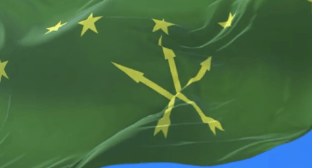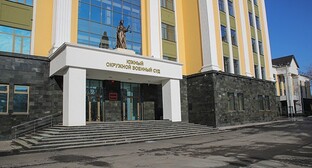
13 April 2011, 23:40
NDI: Georgians are concerned about employment, utility costs and democracy
The main concern issues of Georgian citizens are employment problems, utility tariffs and the low level of democracy in their country. This was confirmed by published materials of the public opinion research conducted in major cities across the whole country by the Caucasian Centre of Research Resources under the order of the US' National Democratic Institute (NDI).
The poll was conducted on March 4-17 and involved 2893 respondents. They named the main national problems as lack of jobs - 61 percent of the respondents, price growth - 39 percent, territorial integrity - 38 percent, poverty - 36 percent, and low pensions - 26 percent.
Among the most pressing problems they identified employment - 81 percent, utility rates - 46 percent, reduced share of locally produced agricultural goods - 33 percent, quality of roads - 32 percent, and increased public transport tariffs - 32 percent. Moreover, 73 percent of the respondents believe that they are unemployed. In regions, respondents still more worry about the problem of employment; in particular, in Kutaisi - 84 percent.
According to 72 percent of them, the situation in the country has worsened or partially worsened. 44 percent agree that there is no democracy in Georgia, while 39 percent believe that democracy is present there.
The interviewers asked them on whether, in their opinion, relations with Russia are built properly. The current state of things is absolutely unacceptable for 28 percent of the respondents, while 21 percent of them find it as partially unacceptable, and 12 percent - as acceptable.
The question of whether the Georgian politicians pay enough attention to relations with Russia was answered as "more than enough" by 10 percent of the respondents; while 50 percent of them believe that the attention is proper, and 31 percent - that it is not enough. For 74 percent of the respondents Mikhail Saakashvili's appeal to the dialogue with Russia is acceptable.
When asked about media independence, 54 percent of the respondents said that compared with the previous year nothing has changed. 8 percent think that the situation has worsened, while 25 percent of the respondents had no answer to this question. 89 percent of the respondents receive information about political and other events produced from central TV channels, 4 percent - from the Internet, and 2 percent - from the printed mass media.
The Georgia's membership in NATO was welcomed by 56 percent of the respondents; 16 percent of them manly supported it; and 7 percent of the respondents were against it.
The ruling party - the National Movement - is supported by 41 percent of the respondents in Georgia, and 28 percent in Tbilisi; the Christian-Democratic Movement (CDM) - by, respectively, 12 and 9 percent; the Labour Party - by 5 and 6 percent; the party "Our Georgia-Free Democrats" - by 4 and 7 percent, the Political Association "National Forum" - by 6 and 3 percent.
At the presidential election, despite the fact that Saakashvili would not participate in them, 33 percent of the respondents would still prefer a candidate from the National Movement. Leader of the Christian-Democratic Movement (CDM) Giorgi Targamadze would win 14 percent; Irakli Alasaniya the leader of the party "Our Georgia-Free Democrats" - 7 percent; Shalva Natelashvili, leader of the Labour Party - 6 percent; Gubaz Sanikidze, leader of the Association "National Forum", and Nino Burdjanadze, ex-speaker of the parliament, - 2 percent each.
At the presentation of the results of the survey, Luis Navaro, head of the Tbilisi-based office of the NDI, noted that the population has more nuance-based approach to the problem than politicians. According to his story, the survey results have revealed that the most sensitive issues for the population are employment, high prices, public transport rates and energy carriers.
Goka Gabashvili, leader of the parliamentary majority, said that the surveys had shown that the state has a lot of things to do; however, the general course is correct. Giorgi Akhvlediani, leader of the CDM parliamentary faction, said that, based on the results of the survey, the authorities should forget their "high-flown terminology about development of democracy and progress of the state."
On the contrary, expert Irakli Sesiashvili is sure that the survey results are biased and suit the ideology of the power. In his opinion, it is impossible that the majority of the population believes that there is no democracy in the country, while 73 percent called themselves to be unemployed; and still they support the policy of the government.
David Usupashvili, leader of the Republican Party, said that if, according to the poll, the government is supported by 48 percent of the population, then, the ruling party should have 48 percent of seats in parliament and municipal self-governments, while it really has 85 percent of seats in the former and more than 90 percent - in the latter.
Nino Burdjanadze, leader of the People's Assembly, said in her comment on the poll outcomes that if, despite the recent developments in Georgia, the authorities' political course is acceptable for the public, and then, we should urgently ask all the psychiatrists of the world to help poor Georgians.
Author: Tamaz Imnaishvili Source: CK correspondent




